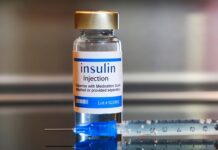What if we could detect early signs of cardiovascular disease through a simple saliva sample? Researchers believe they’ve made progress in this direction by identifying a potential link between gum inflammation and heart health. The team conducted a study using an oral rinse to investigate whether elevated levels of white blood cells in the saliva of healthy individuals could be connected to indicators of cardiovascular disease risk.
The research focused on a concept: gum inflammation contributes to periodontitis, a condition associated with cardiovascular issues. The study involved young, healthy adults without diagnosed gum problems. The researchers explored whether even mild levels of oral inflammation could have implications for cardiovascular health, a leading cause of death in North America.
Dr. Trevor King from Mount Royal University, who led the study, emphasized that even in seemingly healthy young adults, low-level oral inflammation might impact heart health. The team aimed to assess whether oral inflammation might hold clinical relevance for arterial health.
Periodontitis, a common gum infection, has been linked to the development of cardiovascular disease. The idea is that inflammatory substances could enter the bloodstream through the gums, potentially damaging the vascular system. To investigate this, the researchers measured pulse-wave velocity, a marker of artery stiffness, and flow-mediated dilation, a measure of arterial responsiveness. The impaired arterial function increases the risk of cardiovascular disease.
The study involved 28 non-smoking participants aged 18 to 30. These individuals had no preexisting conditions or medications that could affect cardiovascular risk and no history of gum disease. Participants underwent an oral rinse and various cardiovascular measurements.
The results indicated that elevated white blood cell levels in saliva correlated with reduced flow-mediated dilation, suggesting a higher risk of cardiovascular disease. However, there was no connection between white blood cell levels and pulse-wave velocity, which reflects longer-term artery health. The researchers hypothesized that inflammation from the mouth could affect arteries’ ability to produce nitric oxide, necessary for responding to changes in blood flow.
Dr. Michael Glogauer from the University of Toronto mentioned that the mouth rinse test could easily be incorporated into regular checkups with doctors or dentists as a tool to measure oral inflammation.
Dr. King emphasized that maintaining good oral hygiene and regular dental visits are crucial based on this evidence. He noted that this study was a pilot and that they plan to expand the research, including participants with varying levels of gum inflammation to gain a deeper understanding of its impact on cardiovascular health.



























